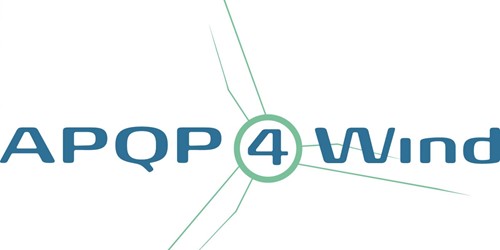News from Tinby
Tinby is making their contribution to the UN’s Global Sustainable Energy Goal no. 7
10. February 2020
At Tinby, we manufacture things such as components made of plastic and composite for the wind turbine industry, items which indirectly contribute to promoting the UN’s Global Sustainable Energy Goal number 7 on sustainable energy. Sustainable energy is one of the UN’s 17 Global Sustainable Development Goals, which is included in the development agenda for sustainable development by 2030. As a supplier to the wind turbine industry, among others, Tinby is playing their part in reducing energy consumption and enabling access to sustainable forms of energy – and our management, project staff, and operators have all completed training in the APQP4Wind quality-management tool.
Standardised requirements for suppliers to the wind turbine industry
Due to the increased demands from the wind turbine industry to produce turbine blades more cheaply and efficiently, the big players on the market have agreed to standardise their requirements to the suppliers. To achieve this, they have compiled a workbook on project implementation in collaboration, and all suppliers to the wind turbine industry must follow the guidelines the workbook describes. Therefore, all relevant employees at Tinby, regardless of whether they are management, project staff or operators, possess a high level of expertise within the area of industry-specific quality assurance such as ‘APQP4Wind’, as the standardised requirements are called.
The quality-management tool (with the tricky name!)
APQP4Wind was inspired by the American quality-management tool ‘Advanced Product Quality Planning’ (APQP), which was originally developed for the American automobile industry. The rationale behind APQP4Wind is that faulty components and weaknesses in the manufacturing operation are much more expensive to correct if they are not noticed until a wind turbine goes into operation. By providing training in APQP4Wind, you can ensure that the desired quality is there right from the start and all the way through the manufacturing process, thereby creating a prerequisite for how uniform quality-management processes should be formulated for the Danish wind-turbine industry.
Or to put it another way, APQP4Wind works to promote communication regarding quality right across the entire value chain, to create significant cost savings by reducing the number of errors made, and to promote a higher level of quality in manufacturing – and to also allow you to launch a new product sooner.
At SP Group, which Tinby is a part of, we currently have 13 APQP4Wind specialists and 16 APQP4Wind management representatives.










